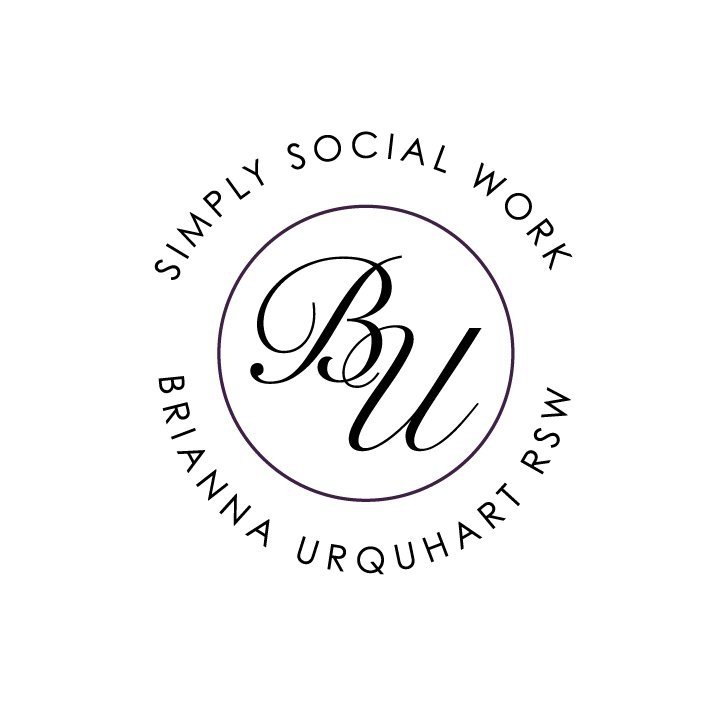Coping with Caregiver Burnout
If you are a caregiver and you feel overwhelmed, exhausted, or irritable - this article is for you! Chances are, you are either experiencing some caregiver burnout or are at risk of struggling with it soon.
Today, I want to share with you some prevention and coping strategies. These will be helpful whether you are currently trying to recover from burnout, or know that it’s something you want to get a handle on early. Prevention is so important, but if you’re in the Burnt Out Club - you’re not alone! The problem with caregiver burnout is that it’s insidious. It often creeps up on you before you realize. Luckily, these strategies are also beneficial for overall wellness, so they can be introduced and incorporated into your life.
First and foremost: you have to make yourself a priority. Not a priority “too”, not as an afterthought or an “if I have time” - a priority. Period. It is not selfish or irresponsible. It is essential and you deserve it.
Feel What You Feel
When you feel difficult emotions like anger or sadness, try to address them right there in the moment. Ask yourself what is making you feel this way, and respond compassionately to whatever the answer is.
When possible, try to cope with the emotions and move forwards, without suppressing them or judging yourself for feeling what you feel. Avoid judging yourself or criticizing yourself for what you feel.
Self-Care
Self-care is also absolutely crucial - and this is where I know I’ll lose some of you. But here’s the thing: you do have time. Because self-care isn’t just bubble baths and facials. In fact, many people actually hate those things, and so the words “self-care” as we often conceptualize it actually turn people off the idea.
But self-care is really "a multidimensional, multifaceted process of purposeful engagement in strategies that promote healthy functioning and enhance well-being." To put it simply: self-care is doing things to look after your health and wellbeing. So, yes, this can mean bubble baths and facials if that’s what refills your cup - but it can also be as simple as practicing gratitude for a few moments each day, calling a friend, taking a walk, or eating your favourite food. The point is just to intentionally carve out some time, even if it’s only a few moments, to do something to make you feel good.
It isn’t selfish - it’s essential. So is taking breaks when you can.
Set Realistic Expectations
It’s also crucial to set realistic expectations for yourself, the person you are caring for, and to maintain boundaries accordingly. Caregiving is life-changing, and a chronic illness will mean changes for you and the person you’re caring for, but this doesn’t mean that your whole existence is now based on this one role. Our identities are complicated and multifaceted, and it’s impossible to expect yourself to suddenly become The Perfect Caregiver. Who were you before a caregiver? What did you enjoy, what were your goals?
Equally, caregiving does come with emotional, physical, financial, and social challenges as well. When you are able, do your research and allow yourself to set realistic expectations for what those challenges might look like for you and your family. Ask the tough questions. Advocate for yourselves when needed.
You do not want to do Doomsday planning, but you also do not want to live with rose-tinted glasses on, either. Realistic expectations will help you reasonably prepare and create the boundaries you need.
Create a Partnership
As a caregiver, we often fall into the habit of taking on everything ourselves. But it’s important to remember that the person you’re caring for still has capability, and the two of you need to figure out a way to become a team and lean on the strengths that they do still have.
Some questions to consider include:
What are they still able to do independently or participate in?
How do they feel about their care?
What ideas or goals do they have?
How can you work together meaningfully to achieve these goals and support each other?
What can they still do to support you and meet your needs? (This is particularly important for romantic partners/spouses!!)
This has the added benefit of empowering the person you are supporting, while making sure that you aren’t carrying an impossible weight by yourself.
Connect with Others
It’s also important to avoid becoming isolated. As I mentioned earlier, it’s really easy for caregivers to become isolated and withdrawn from others. A lot of time and energy is used to provide quality care, and this can lead to our social needs being forgotten about. Out of sight, out of mind. It’s also an unfortunate truth that many people don’t know how to support someone who has recently become a caregiver, and may not reach out.
So, instead of allowing yourself to lose that crucial support, I’m gonna challenge you to do one more uncomfortable thing: ask.
Whatever it is, the way you tell your story online can make all the difference. Reach out to others. Ask for the support that you need. Let people know what you’re going through and what they can do to help.
Professional Support
Needing support to care for others does not make you weak or “less dedicated” as a caregiver. Our medical and social systems are complicated and, at times, overwhelming to navigate on our own. But there are professional and volunteer resources available to you, such as:
Home Care (such as a registered nurse or PSW)
Your healthcare team (family doctor, nurse practitioner, naturopathic doctor, pharmacists, etc)
Mental Health Professionals (psychotherapists, psychologists, psychiatrists, etc)
Caregiver Helpline 1-833-416-2273 (CARE)
Respite Providers/Programs
Social Workers and Case Managers
Support Groups or 1:1 Peer Support
Awareness and/or advocacy Societies
If you’re a caregiver or have had experience caregiving, I’d love for you to share any tips or strategies that help you prevent or cope with caregiver burnout.





